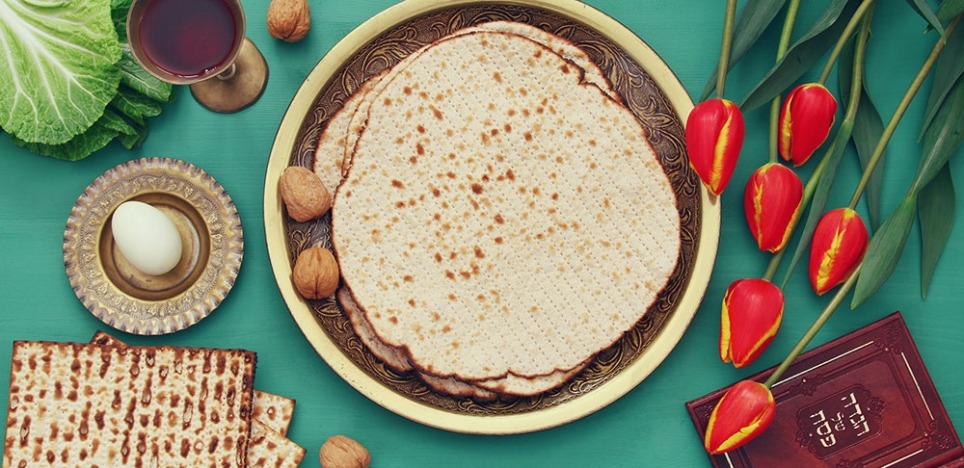Passover (Pesach) is the Jewish spring festival which commemorates the exodus from Egypt. It begins at sundown and continues for 7 days. During this time no leavened bread is kept in the home and mazzah is eaten instead.
The primary ritual of this home-based festival is a ceremonial meal called a seder, held on the first two nights. In addition to eating symbolic foods, families and their guests share memories, tell stories from Jewish history, and honor Jewish heroes and heroines.
Here are some resources to support you in observing Passover:
- The Jewish Theological Seminary of America has gathered a variety of resources, including instructions for preparing and leading a seder, historical background and photos, and readings. Start here.
- Ritualwell.org has a wonderful search engine that enables you to find full ceremonies, rituals, readings, prayers, and other ways to observe Passove, including many feminist innovations. There are pieces on "Planning Your Home Seder," "What's on the Seder Table," and new "Hagadot" (the texts used to tell the Passover story). Search by the occasion "Passover" here.
- The Shalom Center has created a "New Freedom Seder," in the pioneering tradition of the Freedom Seder that Rabbi Arthur Waskow wrote in 1969. It addresses the Pharaohs of our generation — what Dr. Martin Luther King in 1967 called the triplets of racism, militarism, and materialism in our society. More information is available here.
- Miriam's Cup is a new ritual for the Passover seder. Its purpose is to honor the role of Miram the Prophetess in the Exodus and to highlight the contributions of women to Jewish culture, past and present. Read about it here.
